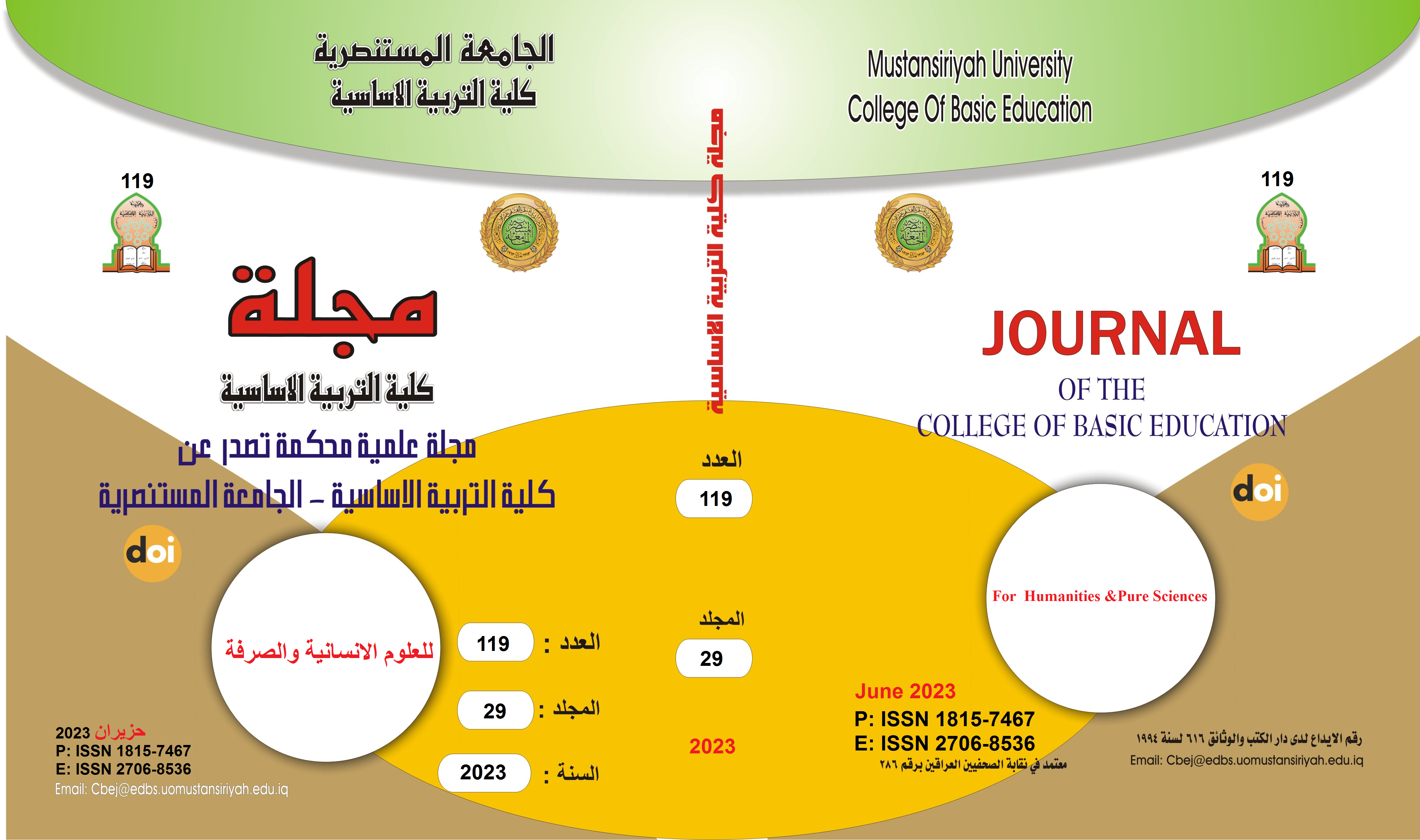Numerical skills and their relationship to reflective thinking among primary school students
Main Article Content
Abstract
The current research aims to identify:
The numerical skills of primary school students and their relationship to their reflective thinking.
In order to achieve this goal, a number of null hypotheses were formulated, as the descriptive-relational approach was followed, and the research sample consisted of (240) students who were chosen in a simple random way, from the sixth-grade students in the center of Maysan Governorate for the academic year (2021-2022).
Two tests were prepared, the first: the numerical skills test consisting of (23) objective items distributed over five skills (numbers and numbers, arithmetic operations and estimation of their outcomes, sentences and numerical relationships, life problems, and mental arithmetic), and the second test of reflective thinking consisting of (21) items Objectivity distributed over five skills (observation and reflection, discovering fallacies, reaching conclusions, developing proposed solutions, and giving convincing explanations). The paragraph with the total score of the test, the relationship of the paragraph with the skill attached to it) As for the stability of the two tests, it was calculated using the Keuder-Richardson equation (K - R20), the test was applied for three days starting from Sunday corresponding to (3/20/2022), and the appropriate statistical methods were used Using the SPSS statistical package, the following results were obtained:
1 There is a weakness in the students' level of numerical skills.
2- There is a weakness in the students' level of reflective thinking.
3- There is a positive and statistically significant correlation between the students' scores in the numerical skills test and their scores in the reflective thinking test.
In light of the research results, a number of recommendations were made, including:
1- Educating mathematics teachers about the importance of numerical skills and the importance of reflective thinking among female students as one of the important objectives of teaching mathematics, as well as qualifying and training them through training courses.
2- Getting the students accustomed to experimenting with the different methods of solving, which helps them to avoid the mechanical methods of calculation in the solution and accustom them to thinking in order to raise the level of the students by paying attention to the quality rather than the quantity and focusing on the development of numerical skills through understanding rather than memorization and indoctrination.
Some suggestions were also put forward, including:
- Conducting a study on the causes of difficulties in learning numerical skills and reflective thinking and the extent of their spread in Baghdad or other governorates.
Article Details

This work is licensed under a Creative Commons Attribution-ShareAlike 4.0 International License.
